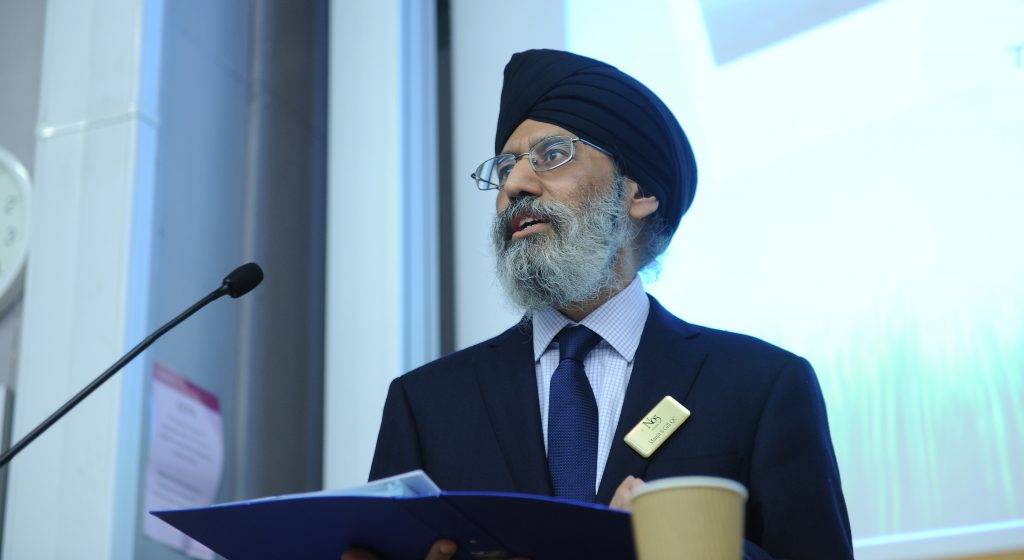
As MPs voted overwhelmingly to trigger Article 50, Birmingham law students, legal experts and academics were attending a talk by two of the barristers involved in the Brexit legal challenge.
Manjit S. Gill QC and Ramby de Mello of No5 Barristers’ Chambers were joined by John Hughes, President of Birmingham Law Society, and Dr Adrian Hunt, Deputy Head of the Law School at Birmingham University.
Both Mr Gill and Mr de Mello considered the impacts on constitutional law, on existing laws and fundamental rights, as well as giving a first-hand account of their involvement with the Miller case that went to the Supreme Court.
Mr de Mello admitted that the process of the legal challenge was not without difficulties: “One issue which the parties assumed to be the correct state of law was that notice once given under article 50 was irreversible.” Mr Gill QC added that the assumption may be tested in pending litigation in Ireland and at some stage by the European Court of Justice. He said the present bill going through Parliament may not be sufficient to provide adequate protection for fundamental rights.
Academic Dr Hunt, who teaches and researches in the fields of public law, human rights and aspects of international law, said the Supreme Court had ruled that there was no legal obligation to consult the devolved legislatures. But he argued that the Sewel Convention was by convention part of the United Kingdom’s constitutional arrangements and the convention gave rise to a constitutional obligation to consult the Scottish Parliament.
During a lively question and answer session, the audience and panel examined what were the immediate implications of the Article 50 Bill, and the changes that would have to be made to the law in different fields.
Mr Gill QC and Mr de Mello acted on behalf of two interested parties in the Brexit appeal. They were the only parties in the proceedings who represented the position of several thousands of EEA nationals and their family members directly affected by Article 50.
They argued that the giving of the notice under Article 50(2) TEU by the executive without the approval and authority of Parliament was unconstitutional and unlawful because the executive cannot exercise its prerogative to alter fundamental rights of residence enjoyed by EEA nationals and their family members without Parliament authorising them to do so. They submitted that the giving of notification under Article 50(2) without proper legislative authorisation will end, at the point of withdrawal, the rights of residence and the other fundamental rights enjoyed by EEA nationals and their family members exercising European Union rights in the United Kingdom, and this class of persons to criminal liability and the risk of prosecution under the Immigration Act 1971. They said that the executive cannot exercise their prerogative in this manner to expose them to criminal liability. It is not yet clear how the government intends to protect their position.